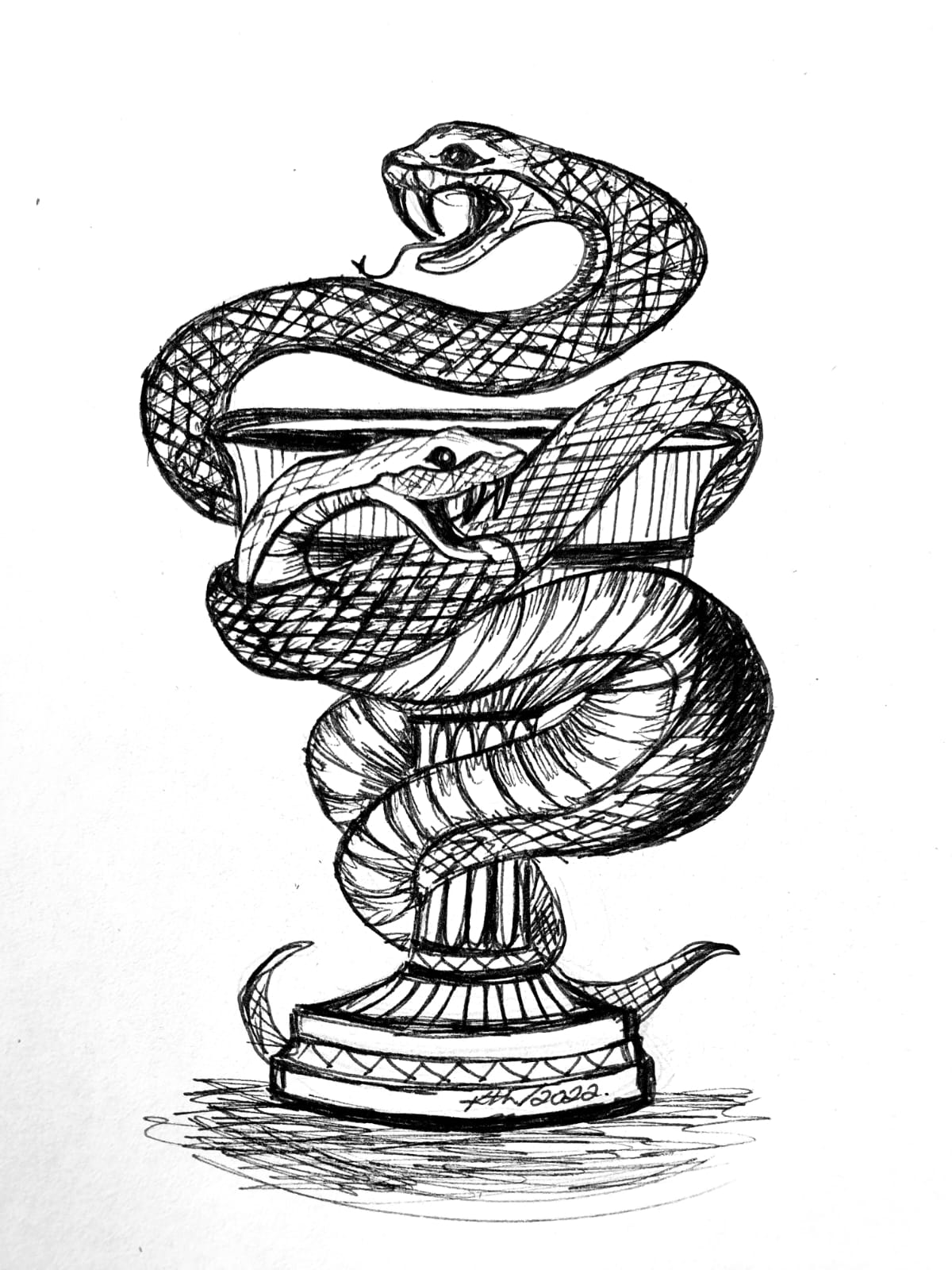How international aid bolstered Sri Lankan despots
by Viruben Nandakumar, Tamil Guardian, London, September 7, 2022
“I was born into a debt-free nation”, claimed Sri Lankan President Ranil Wickremesinghe as he accepted yet another loan from the International Monetary Fund (IMF) on behalf of the island. This will be the seventeenth time since independence that the country has turned to the IMF, which is not to mention loans received from other international institutions. Sri Lanka, once a poster child for economic development, touting an impressive literacy rate and a stable macro-economy, has rapidly descended into a failed state. In no small part, the international community has fuelled Sri Lanka’s collapse.

Illustration by Keera Ratnam/ waves of colour
Rather than push for democratic reforms and a lasting political settlement to ethnic tensions, the international community has aided the ascent of Sri Lankan despots. For their part, these Sinhala leaders were willing to play ball with the economic agenda of the Western elite. Sri Lanka’s first Executive President, J.R Jayawardene, introduced a sweep of neoliberal market reforms that saw the removal of import controls, elimination of subsidies on food and petrol, and deregulated foreign trade. In response, western investment flooded the island, supporting development projects such as the Accelerated Mahaweli Development Programme (AMDP).
US President Ronald Regan showered praise upon the administration for “freeing the Sri Lankan economy from the controls and red tape that stifled progress and economic expansion”. What was omitted was the growing economic divide these reforms would engender. Jayewardene’s reforms reversed “in one decade what had been achieved under welfarism over the previous three decades,” writes political economist Rajesh Venugopal. Increasingly rural Sri Lankans in the Sinhala South would turn to the military as means of employment and by the 1990s it had become the largest employer in the Sinhala South. This followed decades of discriminatory legislation and ethnic pogroms targeted at Tamils on the island.
President Regan, who visited the island in 1984 was unperturbed by the nascent military state nor the genocidal violence which had resulted in the massacre of over 3,000 Tamils a year prior. British Prime Minister, Margret Thatcher’s visited the island the following year to pledge her support for Sri Lanka, framing the ethnic conflict as simply a war on terrorism. When questioned on the government’s response to Tamils, she dismissed the plight of Tamils asserting, “that is a matter for the Sri Lankan Government.” “I do not interfere in the internal affairs of another State,” she declared.
Successive western leaders have not taken an interest in resolving the ethnic tensions which have led to repeat cycles of violence on the island. Instead, their aid has kept Colombo’s elite afloat without having to reckon with Sri Lanka’s growing authoritarianism and racist outlook.
Speaking in 2006, then US Under Secretary for Political Affairs R. Nicholas declared his government’s fidelity to Sri Lanka stating:
“I’d just say on behalf of the United States that we have faith in the government and faith in the president of Sri Lanka. They do want to make peace. We also believe that the Tamil Tigers, the LTTE, is a terrorist group responsible for massive bloodshed in the country and we hold the Tamil Tigers responsible for much of what has gone wrong in the country. We are not neutral in this respect. We support the government. We have a good relationship with the government. We believe the government has a right to try to protect the territorial integrity and sovereignty of the country. The government has a right to protect the stability and security in the country”.
In July 2006, Mahinda Rajapaksa would bring the armed conflict to a bloody conclusion with a genocidal military campaign. Even as the Sri Lankan military continued to rain down shells on hospitals, food lines, and “no fire zones”, killing scores of Tamil civilians, the IMF and World Bank would continue to bankroll Sri Lanka.
Leaked emails from then Secretary of State Hillary Clinton revealed that both the IMF and World Bank were content with the mass “collateral damage” as they believe that the LTTE needed to be “completely destroyed”. These institutions chastised the Secretary of State’s humanitarian concern, reportedly telling then US Secretary of the Treasury, Timothy Geithner, that Clinton was “intruding into his domain”. An estimated 169,000 Tamils were slaughtered in this genocidal onslaught. Thousands more were forcibly disappeared when taken into military custody.
Unsurprisingly, continued policies of appeasement and funding for Sri Lanka’s military and police have not brought about democratic reform, accountability, nor a functioning economy. Instead, such programs have served to whitewash Sri Lankan atrocities whilst enabling a kleptocracy to pilfer the wealth of its citizens. Reliant on the backing of the hard-line Sinhala nationalists and the military establishment, Sri Lankan leaders are unwilling to bring about much-needed reforms.
Increasingly western leaders have become aware that blanket aid has served as a poisoned chalice for Sri Lanka. While enabling relief temporarily, they have not been tied to the deep-rooted issues which perpetuate cycles of economic hardship and outbreaks of violence. Speaking to British Tamils, the former Chancellor, Rishi Sunak, emphasised the need for conditions on aid and stressed the need to roll back the undue influence of the military. A call Tamils have repeatedly made over the years.
Whilst the IMF has agreed to yet another loan to Sri Lanka, the voices of Tamils can no longer be ignored. Decisive action must be taken. Not only to roll back Sri Lanka’s bloated military state but to break the stranglehold of Sinhala Buddhist nationalists and reassert the right of Tamils to self-determination. Or, ironically, in the words of Ronald Regan.
“What will change despair into confidence, deprivation into plenty, stagnation into upward mobility, is a commitment to human freedom”.